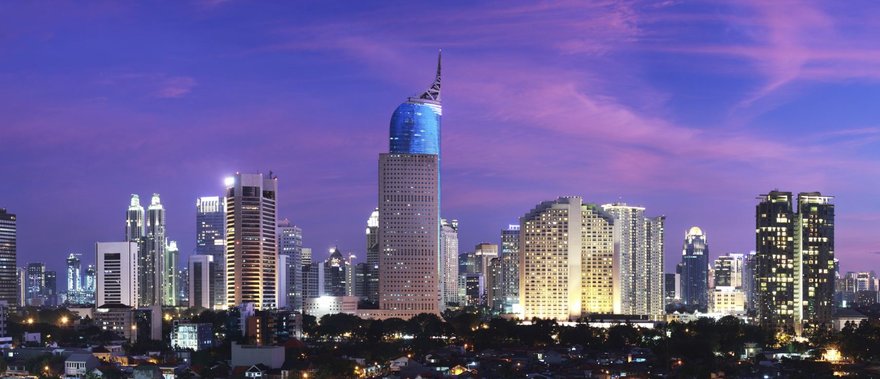It is the fourth most populous country on earth - with an estimated population of more than 250m – and its people are taking to social media fast. So it is no surprise that demand for data center space in Indonesia is expected to rise in the coming years, creating opportunity for technology providers. Global analyst firm Gartner is predicting that Indonesia’s cloud market alone could see double digit growth rates through to the end of 2016.
Despite this, some are not convinced at the country’s suitability to hold data center infrastructure required to meet its soaring demand.
A recent IDC data center index ranking placed Indonesia in the bottom three of the fastest growing Asia Pacific regions in terms of its suitability for data centers. So what is holding Indonesia back?
Power and connectivity
Some of the key challenges, it would seem, are caused by the country’s lack of network infrastructure and its unstable power supply. And much of this is down to the government.
Sudev Bangah, IDC’s head of Indonesia Operations, compares Indonesia to Malaysia. He says in Malaysia the privatized telco Telekom Malaysia will work with the Malaysian government to help fund infrastructure in rural regions which may not otherwise be commercially viable. Telkom Indonesia, on the other hand, is majority state owned so it has to rely on its own resources to roll out network resources.
Indonesia Power is also not too reliable. In May this year state-owned power company Perusahaan Listrik Negara (PLN) announced a series of rolling blackouts to make up for shortfalls at is 900MW gas fired power station supplying Jakarta and Tanerang. It said the power station was running at a deficit of 600MW.
Clement Goh, managing director for South Asia at data center operator Equinix, says power issues in Indonesia can be overcome, however, by building within certain industrial parks that have their own private electricity company. The private facility can be used to either supplement power from the national grid or to function as a backup power supply, though not every location would have it as an option. And then there is the issue of rising prices.
“The Indonesian government is planning to increase the electricity tariff for business by 5.36% to 11.57% as of July 2014,” says Susilo Hadi Sumarsono, country manager for Indonesia at Emerson Network Power. “The increase will affect data center operating costs, especially since energy contributes around 40% of the TCO.”
Attitudes to outsourcing
Limitations of the current infrastructure aside, there is also the issue of how outsourcing - and by extension, data centers - are being perceived within Indonesia. Often viewed as a way to increase hiring efficiencies, outsourcing in Indonesia is treated simply as a means to get contract workers. Bangah notes that IDC’s survey shows more than 70% of enterprises actually prefer, however, to have an in-house data center. These companies cite concerns such as lack of security, trust, performance and availability as reasons not to go with a service provider.
This issue of contractors also highlights the country’s skills deficit. Today, according to Equinix’ Goh, data center professionals are thin on the ground in Indonesia – and the 24x7 nature of the mission critical data center means that the right processes need to be followed, and with urgency when things need to be fixed.
Bangah agrees there is a lack of trained manpower, and notes that new data center operators may find it difficult to retain the right professionals with the required mix of skills due to increased competition. “This [data center] skillset is very scarce because they get stolen very quickly,” he says.
Opportunities beckon
That said, Indonesia does have its advantages for operators. Unlike many of the regional countries that exercise strict control over the power market, Indonesia allows land owners to build power plants to support their own usage.
Goh points to the JK1 data center that Equinix partnered with PT Data Center Infrastructure Indonesia (PT DCI) to build in Jakarta. He says the four hectares of land that JK1 is currently on could potentially house up to eight data centers all being fed by the one on-site power station. “This [would] allow us to mitigate the risk of unstable power or power shortage within the location,” he says.
In addition, the availability of affordable land means that companies establishing a base in Indonesia could find it easier to build their own facilities. “It is just cheaper and easier to set up your own data center,” Bangah says. Other nearby nations such as Singapore cannot use real estate as a sales pitch in this way.
And then there is demand. Internet services and the very high adoption rate of mobile apps will definitely drive content providers to deliver their content within the country, according to Goh. He also says that existing financial regulations which require data to be kept in the country may well be extended beyond financial institutions to cover all IT services, increasing the demand for local data centers.
Government Regulation No. 82, which came into force in October 2012, prohibits financial data from being kept outside the country unless prior approval is obtained.
The road ahead
While growth for the data center industry in Indonesia is expected, it is likely to continue at an organic pace for now - as opposed to the very rapid adoption experienced by neighboring countries such as Hong Kong, Singapore and Malaysia. “There is no government incentive and programs to support the growth of data center in the country,” Bangah says.
Goh says he believes there will “slowly be a need for the government to deregulate the carrier and network markets,” which will open up the market for foreign players to lay more extensive fiber optic connectivity. This could serve to reduce International connectivity costs and offer better connectivity within the country.

